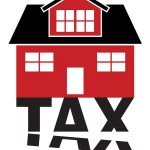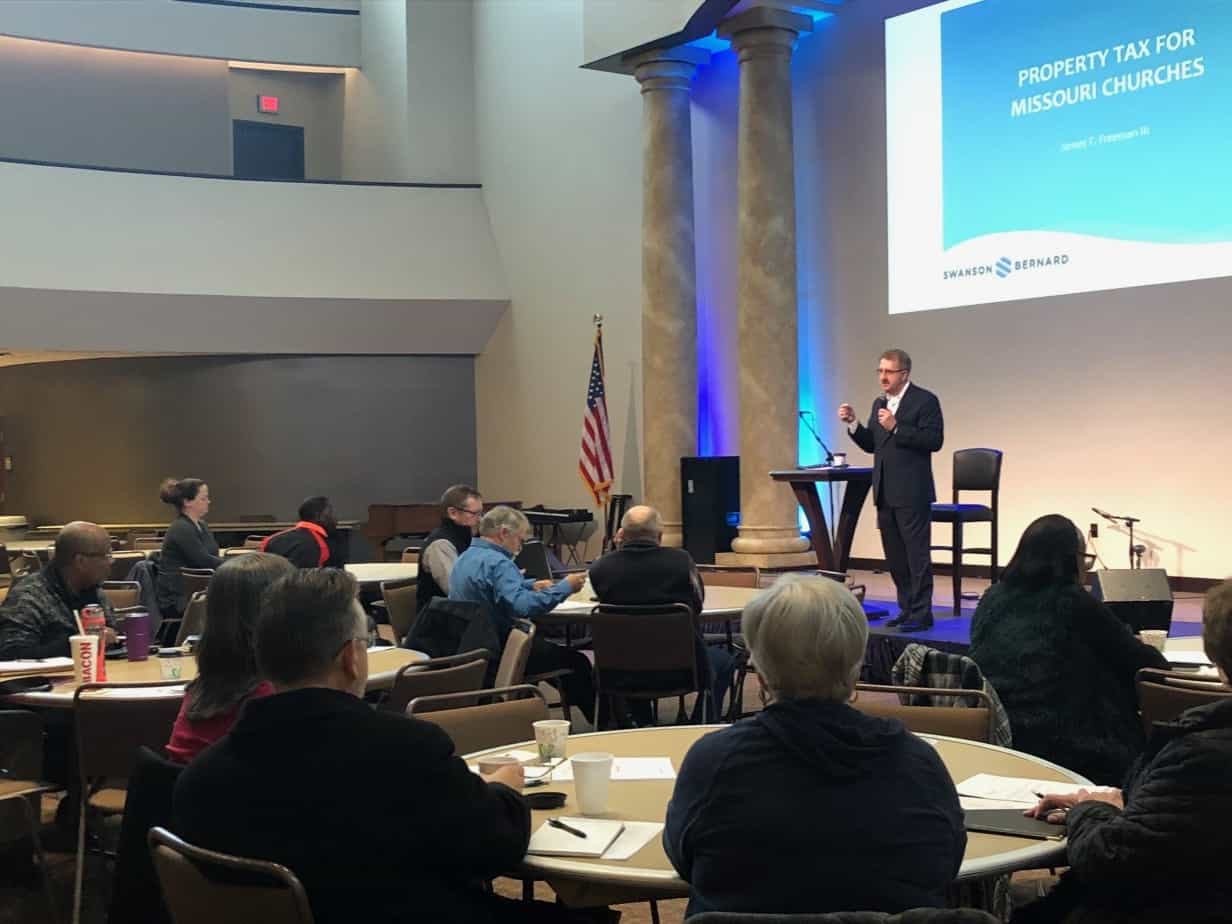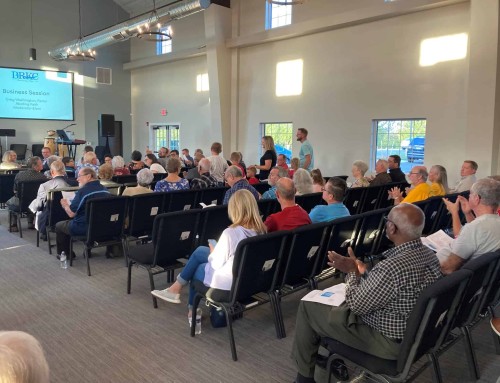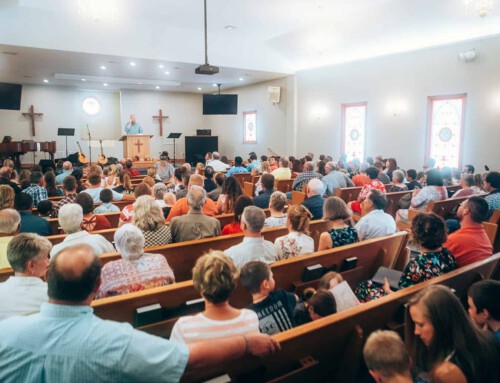 On February 26th, 50 pastors and lay leaders came together at Connection Point Church in Raytown because they had one thing in common. They were all concerned about property taxes! Over the past few years, Jackson County has begun to change its exemption process, resulting in some of our churches being caught unaware. As a response to recent requests from our churches for information and help, BR-KC hosted a property tax seminar bringing in an area attorney that specializes in property law. James Freeman III, with the firm of Swanson Bernard, led the three-hour seminar going over important property tax topics such as Classifications, Exemptions, Reassessment Processes, Dispute and Appeal Process, Application Tutorials and more!
On February 26th, 50 pastors and lay leaders came together at Connection Point Church in Raytown because they had one thing in common. They were all concerned about property taxes! Over the past few years, Jackson County has begun to change its exemption process, resulting in some of our churches being caught unaware. As a response to recent requests from our churches for information and help, BR-KC hosted a property tax seminar bringing in an area attorney that specializes in property law. James Freeman III, with the firm of Swanson Bernard, led the three-hour seminar going over important property tax topics such as Classifications, Exemptions, Reassessment Processes, Dispute and Appeal Process, Application Tutorials and more!
BR-KC would like to express our gratitude to James Freeman for leading the seminar and sharing with us his wealth of knowledge. The following information is a summary of the points covered in the seminar.
Real Property
Real Property can be reassessed upon transfer of ownership or effective January 1st of each odd-numbered year. The days of churches real estate remaining tax exempt in perpetuity without periodic renewal applications are gone. But just because your church doesn’t receive notice of a tax-exempt status change, doesn’t mean there wasn’t one. Everyone has a responsibility to be proactive and check the Jackson County website to confirm that your church’s status is still considered exempt. This should be done before April 30th of each year.
When an exempt organization purchases real property that is taxable, an application for tax exempt status should be filed immediately. But be aware that the tax-exempt status won’t change until January 1st of the following year. The church will owe taxes for the portion of the year from purchase date to December 31st.
When requesting an exemption for real property, either for the first time or for a renewal, here are some keys to remember:
- The property must be actually and regularly used for the exempt purpose and that exempt use must be the “primary and inherent use” of the property, not just a secondary or incidental use;
- The property must be owned and operated on a not-for-profit basis; and
- The dominant, or main use of the property must be for the benefit of an indefinite number of people and must directly or indirectly benefit society.
There are multiple classifications of property and exemptions. Occasionally real property gets misclassified. This usually arises when land is vacant or when improved properties are in a state of transition. It is important to remember that classification is based upon actual use and the assessor does not have to classify all land and property owned by a church the same. If your church building sits on acreage, the County may decide that the exempt classification applies only to the building and immediate yard but not for surrounding land. This problem arises when vacant land or property does not clearly fall within residential, agricultural or commercial use, OR there is no evidence that the entire property is being “actually and regularly used for the exempt purposes”. This has happened to a few churches in our own Association. If you don’t agree with how your property is classified, there is a dispute and appeals process.
Additionally, a few of our churches have been caught off-guard when the County asks for an Exemption Declaration to be completed and the deadline is missed. This results in tax being assessed on the property for the entire year. In many cases, this can mean tens of thousands of dollars. There is an appeal process for this as well but the best chance at success would be to get legal representation.
Personal Property
Personal Property is assessed on January 1st of each year. This means that whatever business personal property a church owns on January 1 you will be assessed for the entire year. Business personal property is property that has an expected useful life greater than a year and has not been fully depreciated. If your church has a Personal Property Tax Exemption, which usually covers vehicles, Jackson County has begun asking for information on the remaining equipment and furnishings. It is advisable that you contact your CPA if you have questions on how to fill this out. Please be aware that the deadline to submit the exemption declaration is before March 1st of each year.
James did mention that other counties haven’t been as aggressive in changing tax-exempt status as Jackson County. However, we encourage all our churches to be vigilant, regardless of where you are located.
Visit https://www.jacksongov.org/150/Assessment for more information. If your church missed the seminar but you would like to receive copies of the presentation and notes or have additional questions, please contact the BR-KC office.



